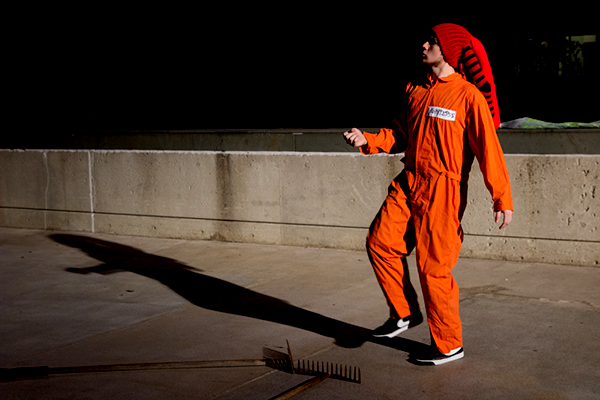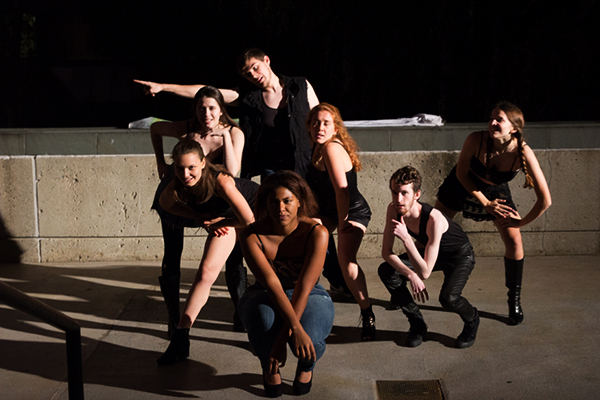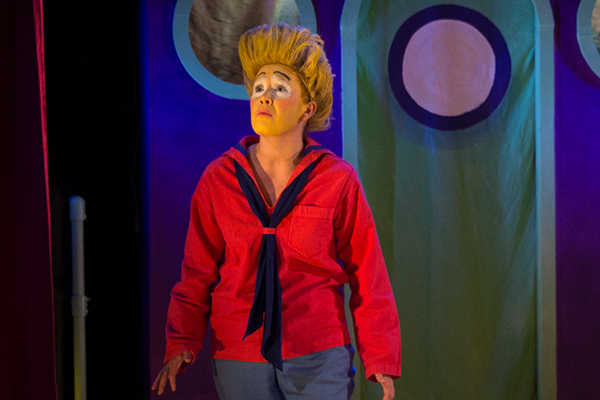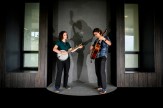New theater production finds religion in The Simpsons

In its 29 seasons, The Simpsons has garnered an audience that watches religiously each week. But in a post-apocalyptic world, could The Simpsons really be religion? That’s part of what Northeastern’s Department of Theatre explores in its newest production, Mr. Burns: A Post-Electric Play.

Photo courtesy of the Department of Theatre
The play—which opened this week and runs through Oct. 28—takes place in multiple locations on campus, starting on the Willis Hall Quad and ending in the Studio Theatre. Tickets can be purchased online.
Mr. Burns, by playwright Annie Washburn, takes place in a post-apocalyptic future, where, in a world without electricity, survivors gather around a fire to recount the plot of an episode of The Simpsons. The second act jumps forward seven years to reveal that the survivor group has formed a theatrical troupe that specializes in performing The Simpsons episodes. The final act jumps another 75 years forward, where the show has taken on a religious import.
Scott Edmiston, chair of the Department of Theatre, said the play has particular relevance in today’s tech-reliant society.
“Mr. Burns, which takes us nearly 80 years into the future, reminds us that the

Photo courtesy of the Department of Theatre
human need to tell and listen to stories is timeless and universal,” he said. “I believe that most futuristic or post-apocalyptic dramas are a kind of warning. They try to help us understand that if we stay on the current course of values and choices, this imagined scenario will be the eventual outcome. In a time when virtually every moment of our daily lives revolves around electronics, Annie Washburn’s play is particularly relevant.”
The production is directed by Northeastern guest artist A. Nora Long, who also directed last year’s After Miss Julie.
Adrian Bauer, AMD’21, plays two characters in the play. He credited Long’s direction.
“I think this piece is a thrilling, experimental, and important work,” he said. “Nora’s direction is superb, and I have loved working with her. This play explores both the terror and danger of an apocalypse as well as human tenacity and hope. It’s a tough piece, but it feels very real and shows a part of human nature, the ability to overcome terrible circumstances, that I find to be beautiful, even in horrendous situations.”




